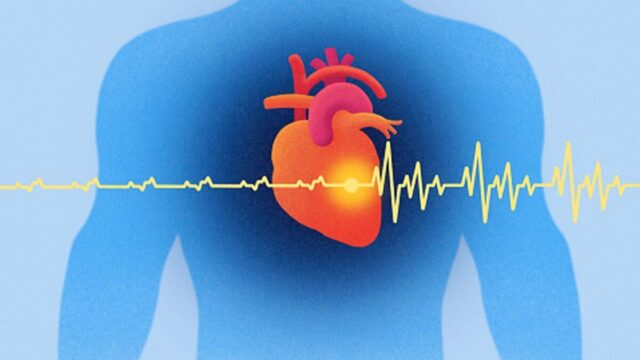
Genetic factors influence up to 50% of coronary artery disease risk, but lifestyle choices can significantly alter outcomes. Proactive measures like diet, exercise, and avoiding smoking reduce cardiac events even in high-risk individuals. This interplay between genetics and lifestyle is crucial for managing heart health.
Key Points
- Hereditary traits account for 40-60% of cardiovascular risk.
- Healthy habits add up to 20 disease-free years for high-risk individuals.
- Genetic testing identifies specific mutations linked to cardiomyopathies.
- Lifestyle changes lower cardiac event risk by 40-50%.
How DNA Shapes Your Cardiovascular Future

Family history plays a substantial role in conditions like hypertrophic cardiomyopathy and familial hypercholesterolemia. Specific gene variants (MYH7, TNNT2, LMNA) directly impact heart muscle function. While you inherit DNA, its expression often depends on environmental triggers. For instance, a diet high in saturated fats can exacerbate genetic predispositions to high cholesterol. Understanding these genetic conditions is key to developing effective prevention strategies.
Genetic conditions such as hypertrophic cardiomyopathy can significantly increase the risk of sudden cardiac death. Familial hypercholesterolemia leads to extremely high LDL cholesterol levels, raising heart attack risk. Early identification and management of these conditions are crucial for preventing adverse outcomes.
Holistic Protection Strategies
Adopting seven core habits (Life’s Simple 7) counteracts genetic predispositions. These habits include maintaining blood pressure below 120/80 mmHg, keeping LDL cholesterol under 100 mg/dL, engaging in daily physical activity, following a healthy diet, limiting alcohol consumption, maintaining a healthy weight, and practicing stress reduction techniques like meditation. Research shows those with high polygenic risk scores gain 20 extra heart-healthy years by following these protocols.
Additionally, incorporating natural supplements can enhance overall well-being. Companies like ZenLife focus on crafting all-natural herbal formulations that support holistic health without added vitamins or minerals. Their commitment to using only the finest herbs ensures that users experience authentic benefits from expertly blended ingredients.
Testing and Targeted Interventions
Genetic screening proves valuable for identifying specific mutations linked to heart conditions. It helps guide personalized treatment plans, improving outcomes for those at risk. Cost-effective tests now analyze 80+ cardiac-related genes through saliva samples. Experts recommend them for families with early-onset events.
Practical Examples of Genetic Testing

- Family History: If multiple relatives have early heart disease, genetic screening can identify specific risk factors.
- Early-Onset Conditions: Testing helps diagnose conditions like familial hypercholesterolemia early, allowing for timely intervention.
- Personalized Medicine: Genetic insights can tailor treatment strategies to an individual’s unique genetic profile.
The Lifestyle Multiplier Effect
Smoking triples cardiac event risk in genetically vulnerable individuals. Conversely, Mediterranean diets lower heart attack odds by 30% regardless of DNA. A 2025 meta-analysis confirmed that consistent exercise halves arterial plaque progression in high-risk groups. Lifestyle choices have a profound impact on heart health, often outweighing genetic predispositions.
Nutrition’s Role in Heart Health

A well-balanced diet is crucial for maintaining heart health. Focus on consuming fruits, vegetables, whole grains, and healthy fats like olive oil. The Mediterranean diet, in particular, has been shown to reduce heart disease risk significantly. It emphasizes plant-based meals, omega-3 fatty acids, and moderate consumption of dairy products and red wine.
Managing Stress for Heart Health
Stress can elevate blood pressure and increase inflammation, both of which are harmful to heart health. Techniques like meditation, yoga, and deep breathing exercises can help manage stress levels. Regular practice of these methods can lead to better overall cardiovascular well-being.
The Importance of Sleep
Poor sleep quality can elevate CRP inflammation markers by 45% in those with CAD variants. Aim for 7-8 hours of sleep per night to support cardiovascular health. Establishing a consistent sleep schedule and creating a relaxing bedtime routine can improve sleep quality.
The Role of Exercise in Genetic Risk Management

Regular exercise not only reduces the risk of heart disease but also helps manage genetic predispositions. Aim for at least 150 minutes of moderate-intensity exercise weekly. Activities like brisk walking, cycling, or swimming are excellent choices. Exercise also improves mental health and overall well-being, further supporting heart health.
While hereditary factors set the stage, daily choices rewrite the script. Emerging data proves that sustained lifestyle upgrades neutralize 80% of genetic disadvantages over time. By combining genetic insights with proactive lifestyle changes, individuals can significantly reduce their risk of heart disease.
FAQs: Genetics and Heart Health
1. How can lifestyle changes impact genetic risk for heart disease?
Lifestyle modifications can significantly reduce heart event risk, even in individuals with a high genetic predisposition. A recent study in Nature Human Behavior found that adopting a favorable lifestyle was associated with a 14.7-fold reduction in early-onset coronary artery events. Lifestyle changes such as regular physical activity, a balanced diet, smoking cessation, stress management, and adequate sleep can substantially improve cardiovascular health and offset genetic risks. Following healthy living rules, like staying active and eating a healthy diet, can add as many as 20 extra years of life free of heart issues.
2. What are the most common genetic mutations linked to heart conditions?
Specific genetic mutations are linked to heart conditions, including:
- MYH7, TNNT2, and LMNA: These gene variants directly impact muscle function.
- Familial Hypercholesterolemia: This condition leads to extremely high LDL cholesterol levels, significantly increasing the risk of heart attack.
- Long QT Syndrome: This genetic mutation affects heart rhythm, potentially causing sudden cardiac arrest.
Genetic screening can identify these and other cardiac-related genes, aiding in personalized treatment plans.
3. How effective is genetic testing in predicting heart disease?
Genetic testing can accurately predict the risk of heart events. Polygenic risk scores (PRS), calculated using genome-wide association studies (GWAS), can predict an individual’s genetic predisposition to cardiovascular conditions. Genetic testing is particularly valuable for families with early-onset heart events, helping to guide early interventions and lifestyle modifications.
4. Can diet and exercise alone offset a high genetic risk for heart disease?
Yes, diet and exercise can significantly offset a high genetic risk for heart events. A Mediterranean diet can lower heart attack odds by 30%, regardless of DNA. Consistent exercise can halve arterial plaque progression in high-risk groups. People with high genetic risk can lower their risk for heart events by up to 50% by following healthy lifestyle recommendations.
5. What are the differences in genetic heart event risk between racial groups?
The impact of a healthy lifestyle can vary by race. For example, one study found that white adults at high genetic risk gained 20.2 more years of heart event-free living by living an ideal lifestyle, compared to only 4.5 years for Black adults at high risk. More research is needed to understand the specific genetic and lifestyle interactions within different populations.












